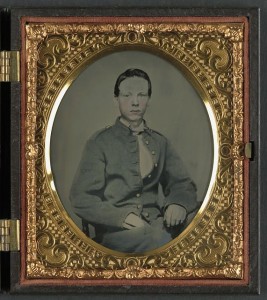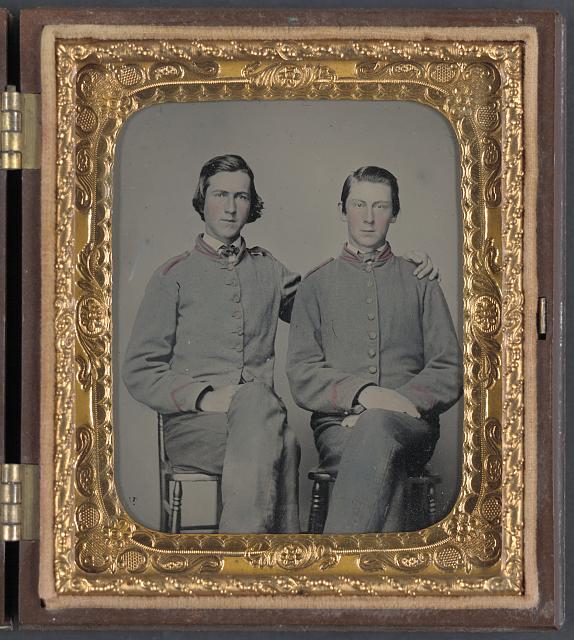Problem?
A Richmond newspaper believes that soldiers’ wives were possibly not being given the preferential treatment they deserved in getting seamstress work at the Clothing Bureau.
From the Richmond Daily Dispatch November 2, 1863:
Soldiers’ wives.
–Complains are frequently made by the families and friends of soldiers, that work is given in any quantity to ladies who have neither husbands nor sons in the army, whilst the wives of soldiers are refused tickets, and sometimes rudely treated at the clothing bur[eau]. Where so many persons are to be supplied with work it is very difficult to do justice to all the really needy that apply, or to prevent those who do not need from getting the work that others ought to have. A note before us gives the names of ladies, whose husbands are not in active service, who get enough work to earn and lay by money every week; and also the names of others, whose husbands are in the field, and who have to depend upon their needles for the support of themselves and children, who have been rudely refused tickets for work. Where such cases are known the facts should be given to the head of the clothing bureau, in order to have the errors corrected. From what we have seen we are quite sure that the authorities design giving the wives and mothers of soldiers the preference in work, and only need be informed of any injustice to ensure speedy correction.
Resolved?
From the Richmond Daily Dispatch November 5, 1863:
The Clothing Bureau,
on 14th street, near Cary, under the charge of Capt. Weisiger, has been carefully arranged, as well for the transaction of business as for the accommodation and convenience of the three thousand ladies who get work there. Capt. W. says his first object is to give the work of his department to the wives, daughters, and mothers of soldiers in the field, and to enable him to do this he has already called in some five hundred tickets, held by ladies whose supports are not in active service.–The families of detailed men are not equally entitled to the work with those of soldiers, nor are any other class. Such lists as have been forwarded to us will be sent to the proper bureau, in order that the really needy may have the preference over those ladies who have their husbands and fathers with them, and who can get along without Government patronage.
We are satisfied that all abuses in this office will be remedied as soon as they are discovered, and that Capt. Weisiger will do all in his power to aid soldiers’ families in providing for themselves the necessaries of life. After they are served the surplus work, if any, will be given to helpless widows and other ladies who live only by their needles, and who are known as deserving.
The Richmond Clothing Bureau, also known as the Richmond Depot “supplied uniforms, footwear, and other equipment to the Confederate States Army, primarily the Army of Northern Virginia, and the surrounding region of the Commonwealth of Virginia.” You can read a good overview of the clothing depot at the U.K.’s American Civil War Society. About two dozen tailors cut the cloth. The women in our stories would have assembled the uniform parts from “kits” that included cloth, thread, and buttons. O.F. “Weisiger, a former dry goods merchant, ran the manufactory as a civilian until 1863 when he was commissioned a quartermaster captain.” Food might have been becoming increasingly scarce in the South, but the Richmond Depot was producing large quantities of clothing, which can also be seen at a letter from 1863 published at Blue and Gray Marching. You can read another thorough article about the manufacture of Confederate uniforms at The Company of Military Historians: “The important thing to keep in mind about the Clothing Manufactories is that, in common with the decentralized nature of the war and the overall Confederate policy of each army supplying itself from its own departmental resources, the products of each depot varied depending on local resources. The patterns of the uniforms themselves also varied.”


